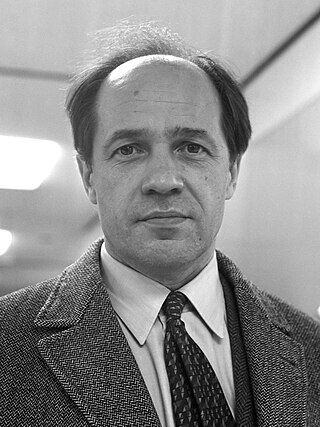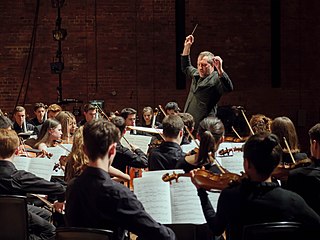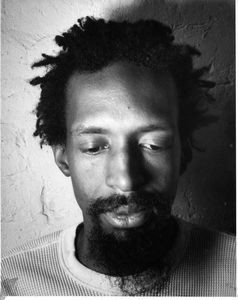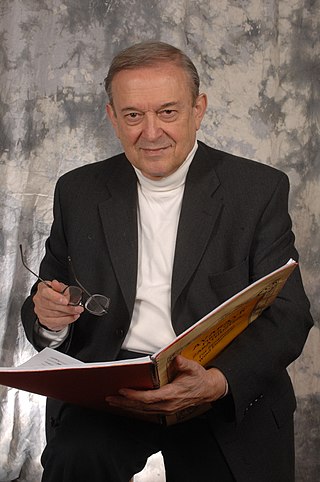Biography
Rocco Di Pietro was born in Buffalo, New York, in 1949. He studied composition and piano with Hans Hagen in Buffalo and at the Berkshire Music Center, Tanglewood, where he won an ASCAP Fellowship to study composition with Lukas Foss and Bruno Maderna. While at Berskire, Gunther Schuller performed Di Pietro's Drafts (1971) with the Berkshire Music Center ensemble. Di Pietro's teacher Bruno Maderna commissioned the work Piece for Bruno (1974) for the Nancy Meehan Dance company, which was conducted by Dennis Russell Davies with the St. Paul Chamber Orchestra at the American Dance Festival in New London, Connecticut, 1974.
Di Pietro worked exclusively in musical composition for 20 years before earning degrees from SUNY Buffalo and Vermont College. He combined his musical and academic experience as an interdisciplinary professor teaching in prisons and at colleges in New York, Ohio, and California. He toured California prisons as an artist-in-residence. In 1988, Di Pietro finished his first book, A New Peasant Consciousness: Menocchio The Precursor. Presented to Vermont College as his thesis, he was granted a Master of Arts in Music and Social History. The book also included the musical works Etudes for Menocchio and Annales For Menocchio, and ultimately served as the basis for an interdisciplinary work combining opera, film, lecture, slides, and music.
Di Pietro taught the historiography of Annales in prisons throughout New York, Ohio, and California as a guest of the William James Association. From there, he expanded his research and teaching to courses in sociology, anthropology, abnormal psychology, critical theory, philosophy, musicology, and art theory. [2] One current ran throughout his scholarship and teaching: examining the subject in terms of its relationship to power. At the end of this 11-year period, he returned to music, with literature a primary influence. His work in prisons led to an Ohio Arts Council grant to attend What Next, a conference in San Francisco on the state of United States prisons. In 1995, he was named artist in residence at the Headlands Center, California.
While teaching in prison, Di Pietro published highlights of five years of his conversations (1996–2000) with noted composer Pierre Boulez in the book Dialogues with Boulez, (Scarecrow Press, 2001). His main question for the maestro: where did the new music of the mid-20th century go? Gramaphone said of the book: "You can admire Di Pietro for his persistence in persuading Boulez to participate in these exchanges, and for provoking a number of reasonably stimulating comments, not least about his continuing desire to write an opera." [3] Upon publishing the book, Di Pietro presented it to IRCAM in Paris, France, and was invited to speak about the book by Mills College and Stanford University. He also attended the Stockhausen Summer Course for Music in Kürten, Germany. His essay Musician Without Notes, based on his experiences in Kürten, found the composer re-assessing his relationship to composition.
- When I hear the works of young composers successful enough to have
- performances, recordings and musical jobs, I'm no longer envious. Something
- has happened to me. Without doubt I too once wanted what those
- successful young composers have, but now I see the kind of music
- that comes out of that particular kind of insulation. Let's call
- it the insulation of success." [4]
Di Pietro's third book, The Normal Exception: Life Stories, Reflections and Dreams From Prison, was the result of his work in prisons. Teaching prisoners inspired the Prison Dirges cycle, works based on the firsthand accounts of prisoners in the penal system. Dirges has been presented a variety of venues: from Alcatraz Island to Roulette Intermedium, New York.
After years of prison work, Di Pietro divided his time between social work and teaching humanities at Columbus State Community College. In addition to humanities courses taught a sequence of electronic music courses and founded an annual electronic music festival to give his students a chance to present their work. In 2004, he released a CD retrospective of his works called Multiples and The Lost Project. The Lost Project, based on the plight of missing children, employed the musical monogram techniques developed by Johann Sebastian Bach. Di Pietro took on the role of a "social composer," and attempted to connect his time spent as a social work and his music. Work in this area led to grants from the Puffin Foundation. The Lost Project is presented in traditional settings (Dartmouth College and Stanford University) as well as the less-traditional (street corners, churches, and community festivals).
Next, he gathered essays for his fourth book, Musician Without Notes, and began work on another large interdisciplinary cycle, The Comedy Of The Real (2003–2009), a series of radio dramas in the form of "positions" emanating outward in a spiral. The Third Position was broadcast on radio stations in New York, Helsinki, and Amsterdam. The CD of the work was released in 2006. Comedy references Dante's Divine Comedy, Balzac's La Comédie humaine, and the consciousness studies of Julian Jaynes. The work focuses on creating something transgressive within post-modernism along with simulation, the hyper-real, and investigating body traps and entrainment processes in trance experience. The work continued with texts for fourth, fifth, and sixth positions. Also during this time, Di Pietro completed the works Rhizome for Evelyn Glennie for percussion, electronics, and stone instruments; and a new series of Chiaroscuros. The composer's goal is to demonstrate that music is a contestation in “counteracting human alienation in a world of utility.”
In early 2009, Di Pietro was the SICA (Stanford Institute for The Creative Arts) Composer in Residence. [5] While in residency, Di Pietro worked on several projects including Body Trap for the Wired Sound ensemble with Chris Chafe, Pauline Oliveros, and Chryssie Nanou; a new section of his ongoing cycle, The Comedy of the Real for Ge Wang and the Stanford Laptop Orchestra; and work on his orchestral piece Finale which received its official premiere at Stanford under the direction of Jindong Cai, conductor of the Shanghai Orchestra in China, in May 2012. [6] As a guest composer he led graduate composition seminars, provided private lessons, and consulted with composition students. Di Pietro was awarded a grant by the Ohio Arts Council in the 2012 Individual Excellence Awards program for his compositions Italian Rajas with Odalisques and Caravaggio-Chiaroscuro II.
Di Pietro's current project is a five movement symphony called The Art of Imaginal Listening. He is working with community orchestras, and in particular, the Greater Columbus Community Orchestra conducted by Olev Viro. The second movement of the symphony called The Dome was written for the cellist Luis Biava and Olev Viro. [7] The third movement of this symphony is Prayer, also written for Biava and Viro, and dedicated to José Antonio Abreu and the youth orchestras of El Sistema.












